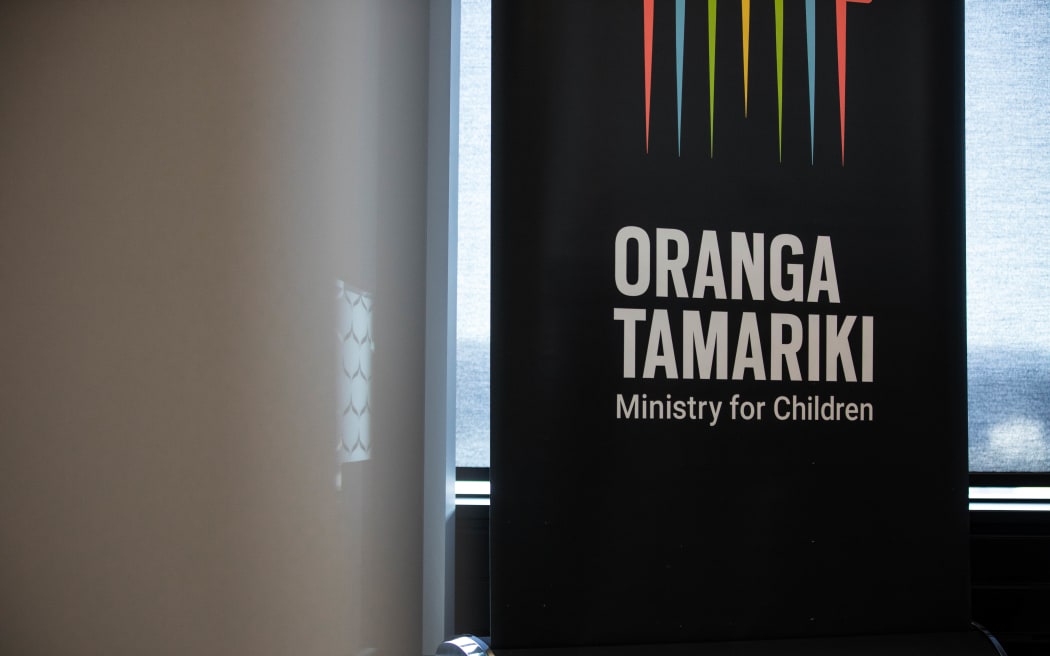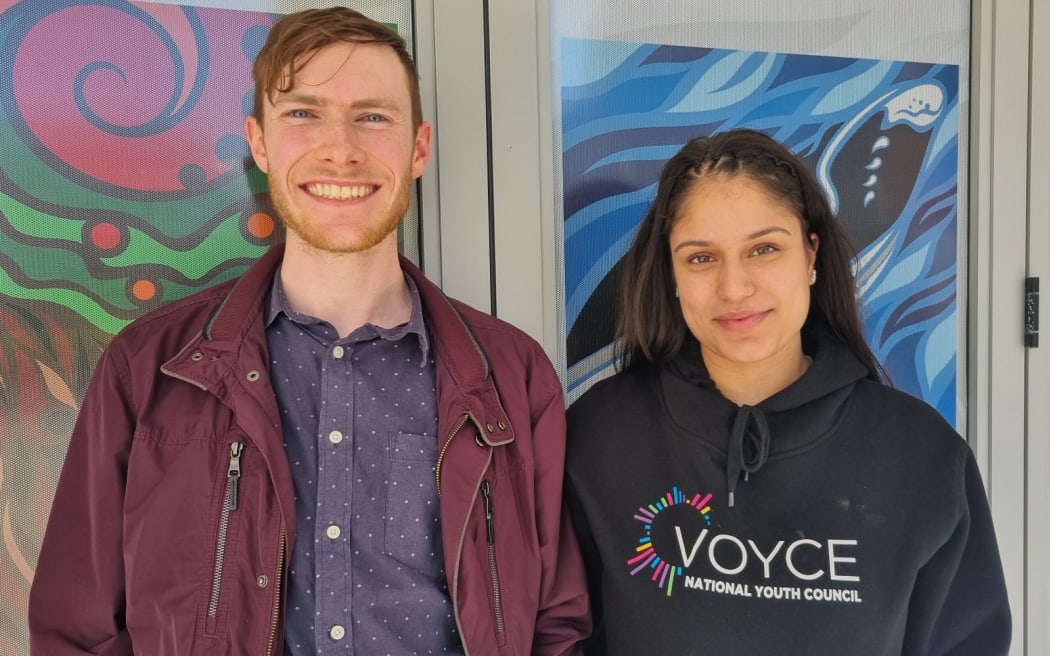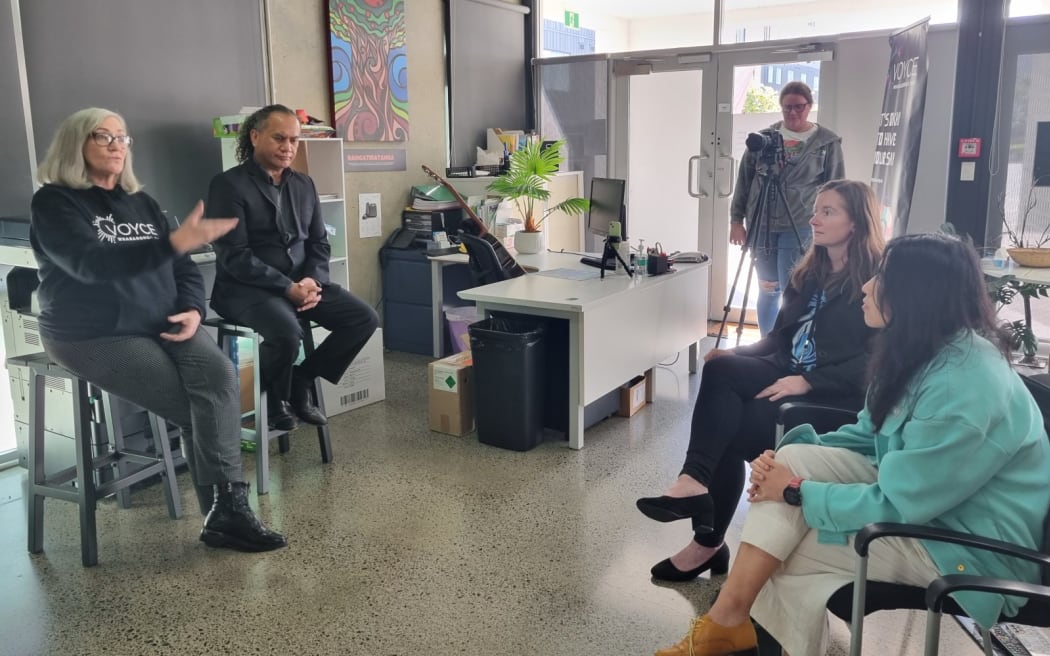
VOYCE chief executive Tracie Shipton says embedding advocacy groups in the state response to care would help hold agencies accountable (file image). Photo: RNZ / Samuel Rillstone
Young people in state care are urging Oranga Tamariki to honour its parental responsibility and tighten efforts to look after tamariki and rangatahi under its care.
On Tuesday, care-experienced advocacy agency VOYCE - Whakarongo Mai launched the 'You Promised... Now Deliver!' campaign, calling on politicians to ensure children and young people in care are kept front of mind this coming election.
The campaign followed a 2020 call for action from the advocacy group, when care-experienced young people established the '6 PROMISES FOR 6000' campaigns.
The promises reflected things like stability, good education and healthcare, a feeling of belonging and including young people in care in decision making.
VOYCE chief executive Tracie Shipton said the promises were not new.
"They are promises New Zealand made when they signed up to the United Nations Convention on the Rights of the Child 30 years ago - and yet, rangatahi and tamariki within state care in Aotearoa New Zealand are still waiting for these promises to be kept."
The state, as a parent, had an obligation to uphold basic human rights for children in its care, Shipton said.
"And yet, even recent monitoring of Oranga Tamariki's National Care Standards has highlighted they are falling woefully short of their own basic standards and are failing to keep these promises which they have made to our tamariki.
"We need an Aotearoa New Zealand where the government takes seriously its parental responsibility for tamariki in care and ensures that every child and rangatahi has the resources they need to live with love and mana."
New Zealand has more than 6000 children and young people in the state care system.
21-year-old Alchimae Prasad is one of them. In state care since she was only a year old, she said the system needed more voices of those who experienced it.
"Many times, when in foster care, I would just be asked to pack my bags and wait for the social worker to pick me up, without knowing where or to who I was going to. I was never really asked about how I felt, where I wanted to go, what I thought would be best for me, as if I was not capable of making that decision.
"We need to make sure people that have experienced the system [also have a] voice when policies and practices are being created - after all, we are a reflection of what the system has done to us."

Isaac Heron and Alchimae Prasad. Photo: Rayssa Almeida / RNZ
In the care system since he was only six months old, Dunedin-based Isaac Heron said those with lived care experience should be at the table whenever decisions were made.
"Whenever any decision is made and it is something that is embedded in the whole culture of the care system, they should directly and actively ask young people what they want.
"Even though people in care can't dictate what will happen to them, even just being asked shows that you are important, and it will still give an opportunity for people to give insights that otherwise people wouldn't have had.
"And that also increases accountability in terms of meeting any other promises we might be wanting to institute."

Tracie Shipton speaking on the campaign launch. Photo: Rayssa Almeida / RNZ
VOYCE had collected more than 3000 signatures on its online petition.
Shipton said children in state care were far more likely to experience homelessness as they transitioned to adulthood.
"And yet, with all the challenges and injustices that children and young people in state-care endure, the urgency and concern for their wellbeing is yet to reach crisis point.
"Instead, headlines are dominated by "tough on crime" debates that minimise the suffering of our children, trivialising their experiences for the sake of winning political points."
Embedding advocacy groups in the state response to care would help hold agencies accountable, she said.
"If you have it hardwired into the DNA of the organisation, then nothing gets taken for granted. The voices of young people will speak into every aspect of the government policy development and response to care."
The future of young people in care should not be a political football, Shipton said.
"The decisions that are made are influenced by the government of the time. So, we have to approach every government when it comes to young people's rights, and we shouldn't need to.
"Young people's rights should be an integral part of how political parties operate, not the other way around.
"We don't want to be in the back-end call of a political party, we want everyone to care about our young people in the same way."


